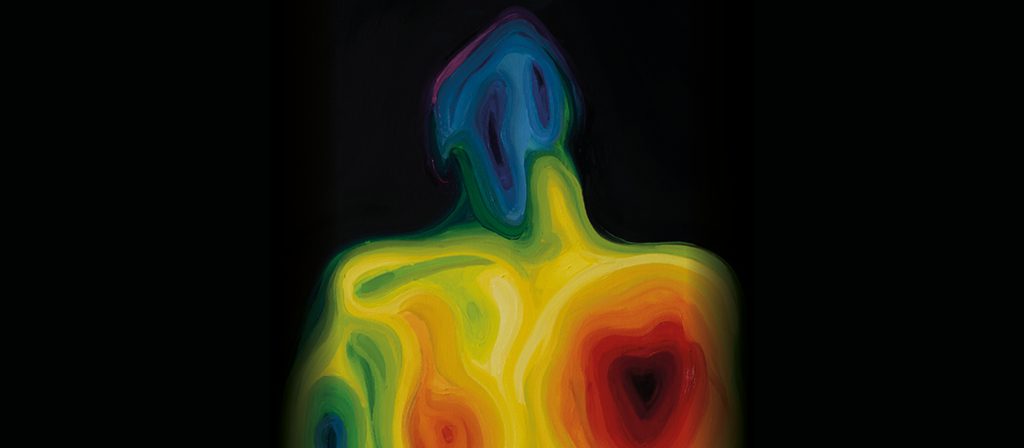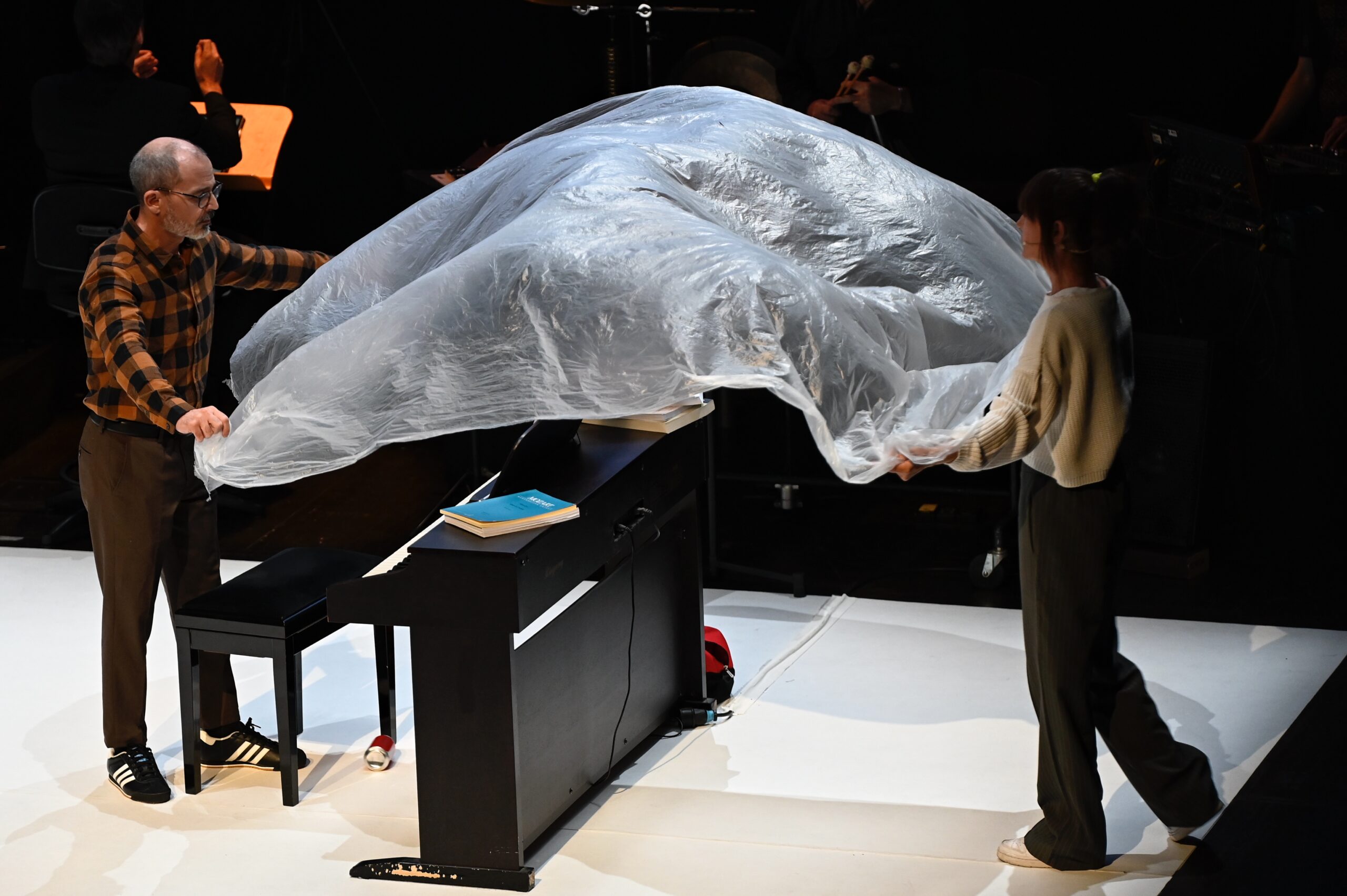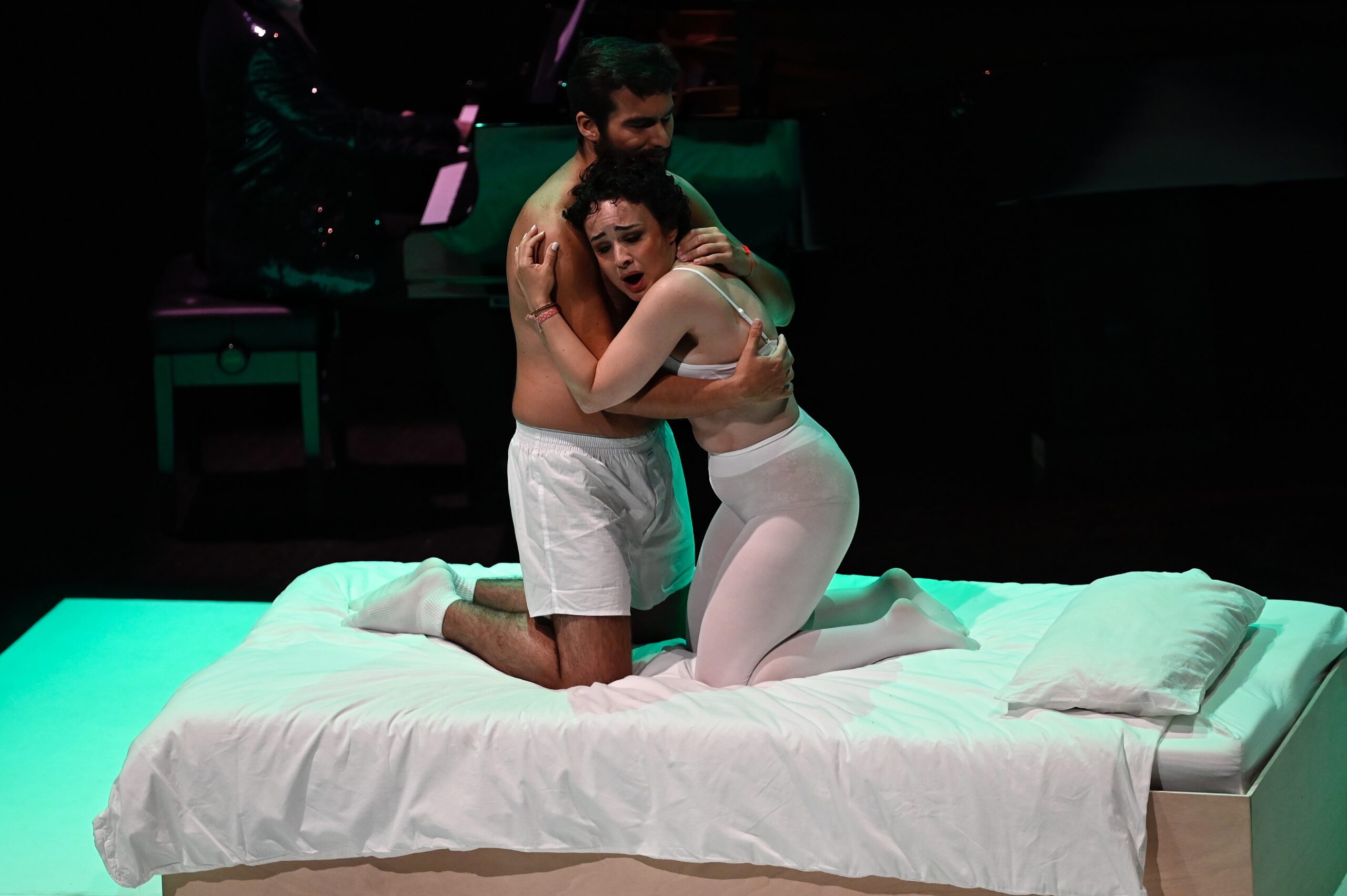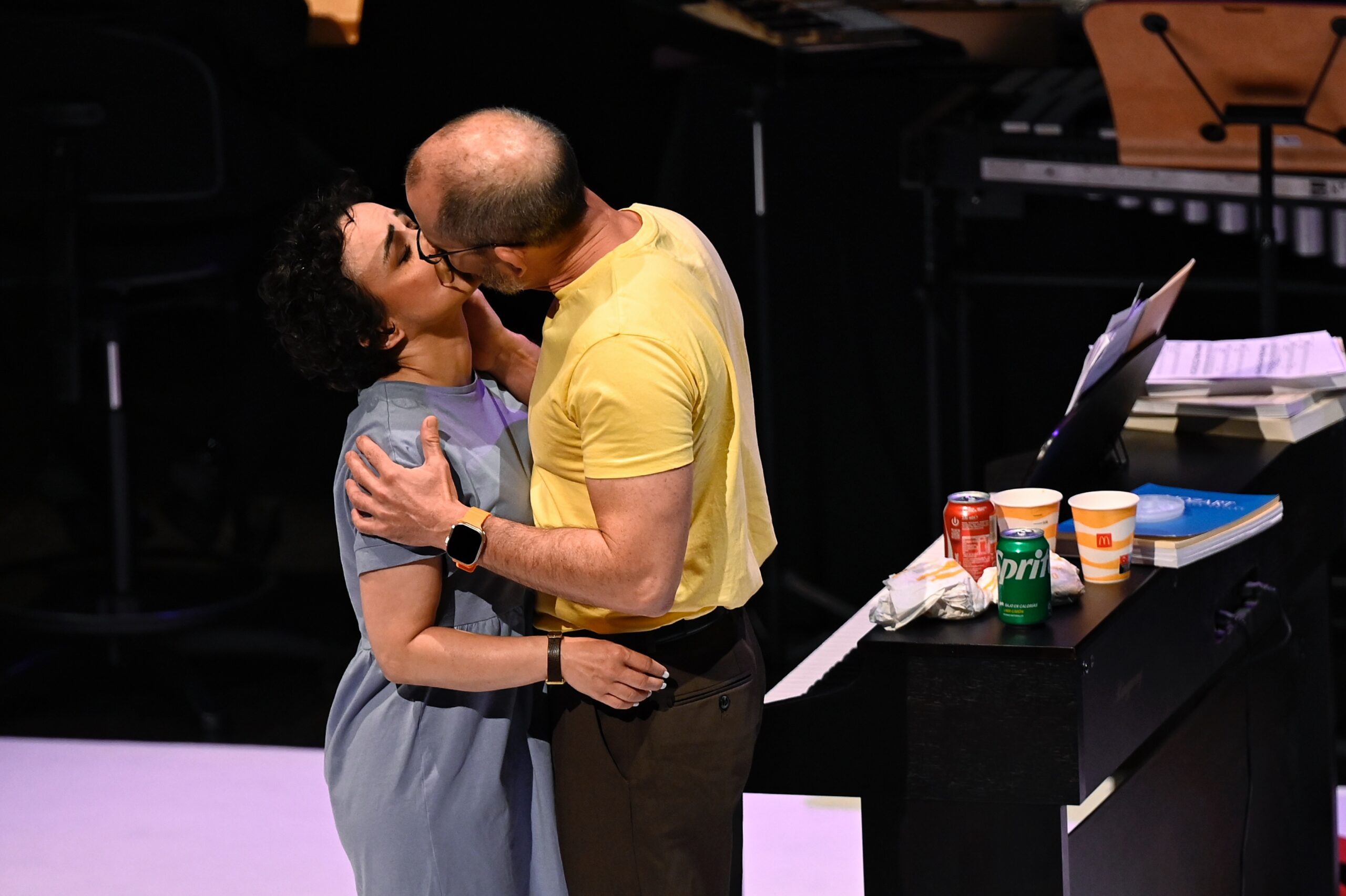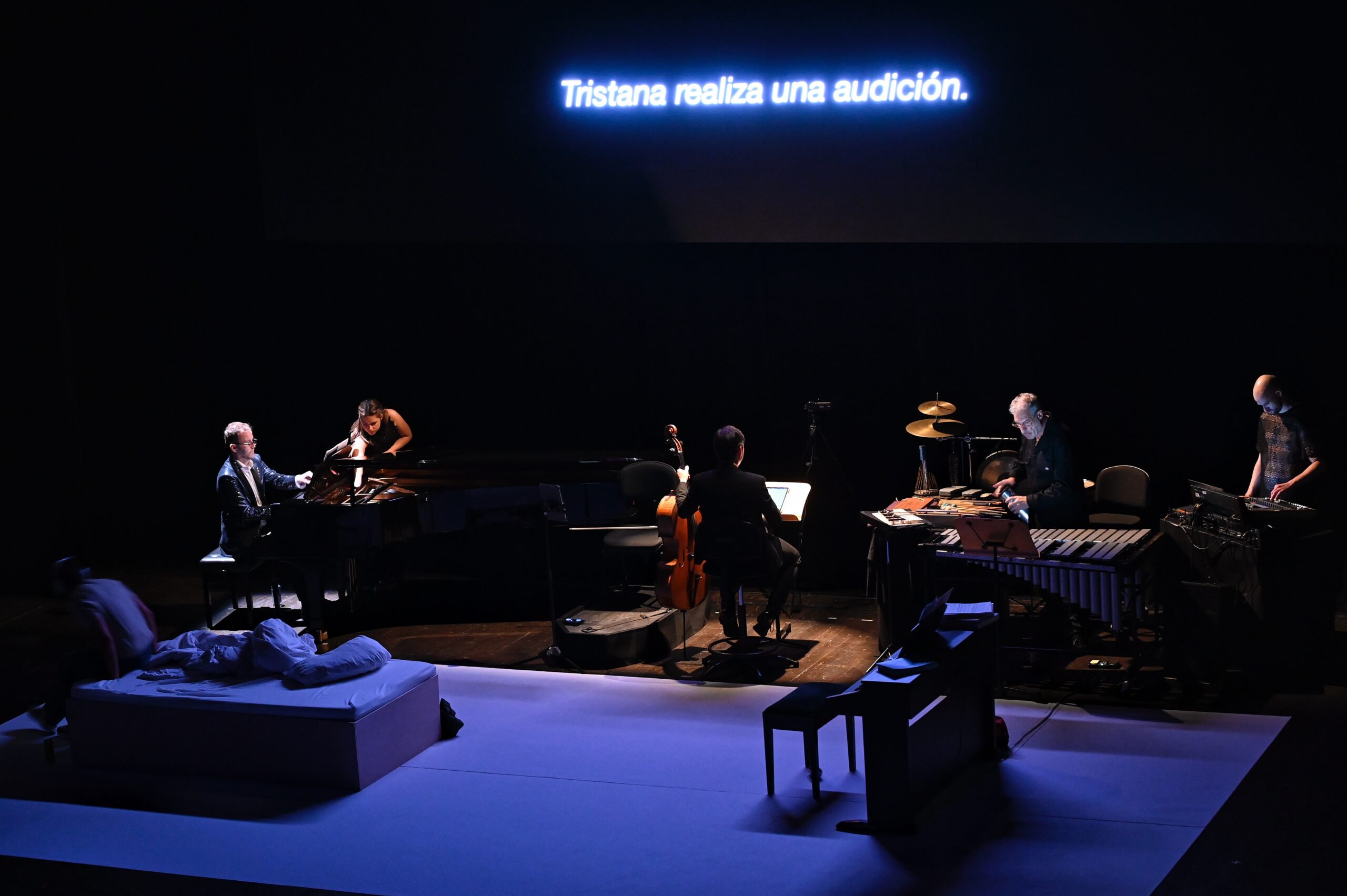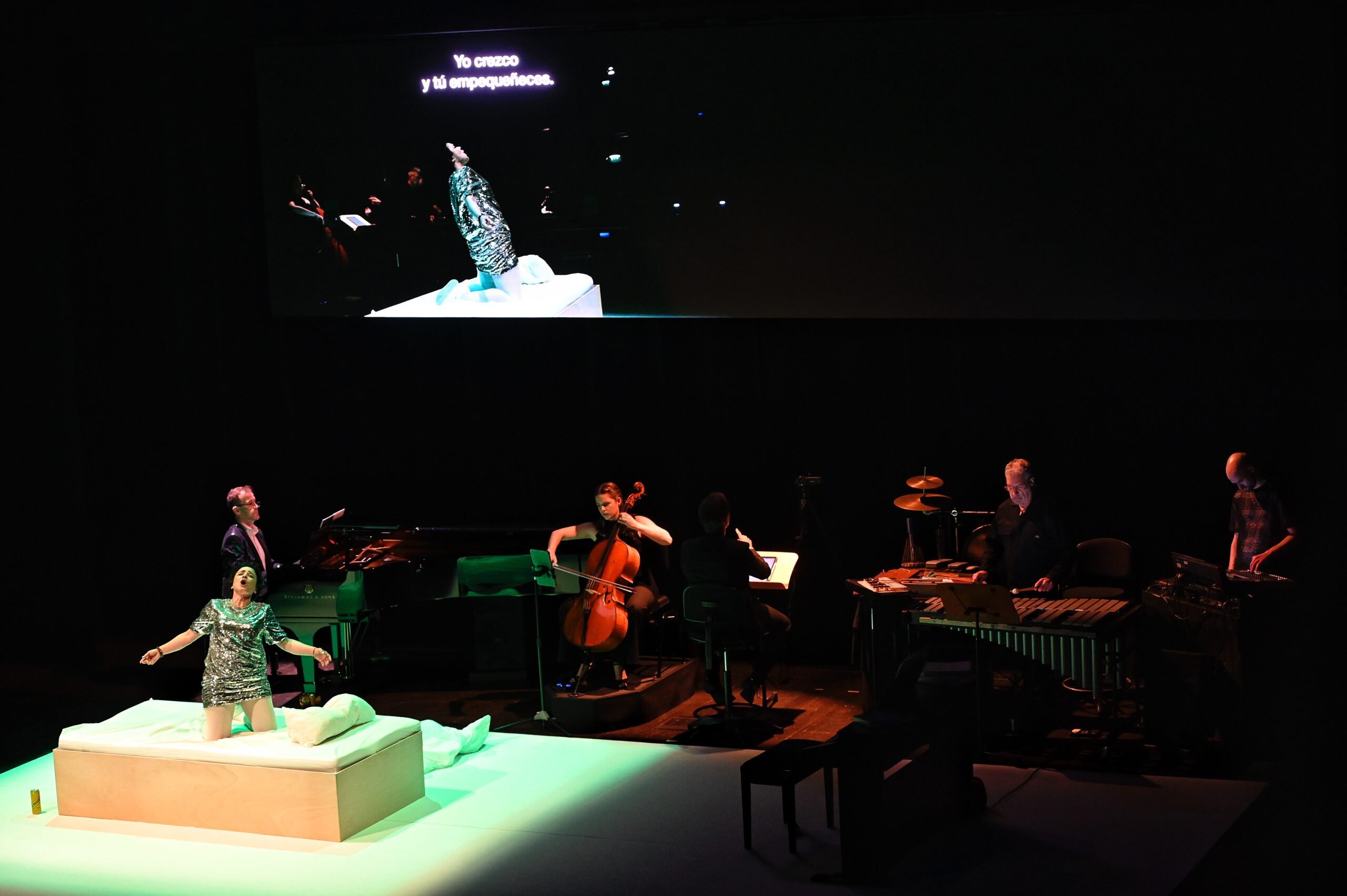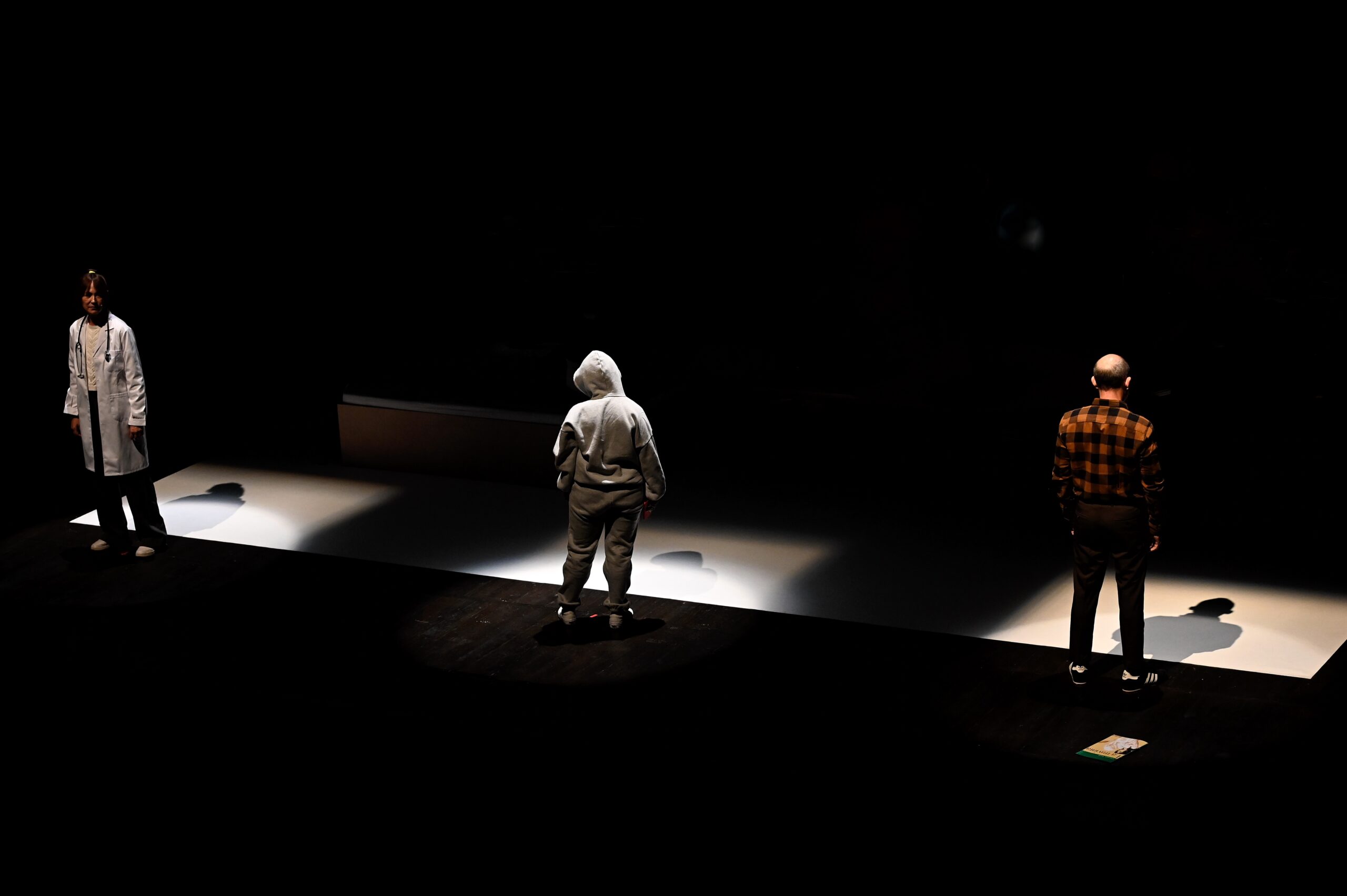Tristana
Synopsis
As part of the Ópera en minúscula’ (Small-format Opera) concerts, Tristana by Miguel Huertas-Camacho has been scheduled for performance at the Teatro Leal in a co-production of Auditorio de Tenerife and the Autonomous Community of Madrid. This contemporary chamber opera is based on the novel by Benito Pérez Galdós and the screenplay by Luis Buñuel and Julio Alejandro.
It is a contemporary opera that explores freedom and desire and makes metaphorical use of the body as a battlefield. This version of Tristana offers a radically updated interpretation of the novel of Benito Pérez Galdós and explores the symbolic power of the female body and the right to emancipation. Based on the screenplay of Luis Buñuel and Julio Alejandro and with a libretto written by Jorge Volpi, this adaptation is set in the Chamberí neighbourhood of 21st-century Madrid, where the echoes of a patriarchal and bourgeois Spain are still heard in modern corridors, cell phones and moments of silence in which violence hangs in the air.
The original score, composed by Miguel Huertas, is interpreted on piano, cello and percussion, with vocals provided by a soprano, a tenor, a baritone and an actress. Onstage, the characters —Juan López Garrido, Tristana, Horacio and Saturna— make their way through an intimate, political and emotional landscape that brings together love, power, dependence and the need to break away from everything.
The work is staged around a large LED display and live video through which gestures are amplified, intimacy is decomposed and essential, and symbolic details are revealed: controlling hands, a shifting gaze, and a broken voice. Rather than serving as mere decoration, these resources are an essential part of the work’s language and provide spectators with cinematically and emotionally crucial moments.
However, the real rupture occurs at the end of the story. Whereas the novel ends with Tristana’s mutilation, in this version, she is the one who decides to leave. Rather than a leg being amputated, a voice is heard insistently, although it is a wounded voice. Rather than submission and defeat, this version’s contemporary, lucid and contradictory Tristana chooses a path that may lead to freedom. However, it may entail pain and may require singing with a different voice.
Artistic datasheet
Composition: Miguel Huertas-Camacho
Text: Jorge Volpi, based on the novel of Benito Pérez Galdós and the screenplay of Luis Buñuel and Julio Alejandro
Musical direction: Bauti Carmena
Stage management: Ricardo Campelo
Soundscape and electronic composition: Pedro Frágüela
Stage space and video: Ricardo Campelo
Lighting: Luiggi Falcone
Costumes: Rhina
Assistant director: Miguel Ángel Gómez Paredes
Production: Ruth González
Co-produced by: Opera de Tenerife, Community of Madrid and the Teatro Xtremo
Cast and ensemble
Tristana: Ruth González, soprano
Lope: Enrique Sánchez-Ramos, baritone
Horacio: César Arrieta, tenor
Saturna: Luisa Torregrosa, actress
Ensemble
Musical direction and piano: Miguel Huertas-Camacho
Drums: Juanjo Guillem
Cello: Irene Celestino
Gallery
About the production
Acclaimed Mexican novelist Jorge Volpi is the author of the libretto of Tristana, an adaptation of the chamber opera of one of the best-known novels of Benito Pérez Galdós. This year marks the 125th anniversary of the birth of Luis Buñuel, who directed a film based on the original novel in 1970. Volpi’s chamber opera sets the story in the Chamberí neighbourhood of 21st-century Madrid, where the main characters live: a tyrannical opera teacher, his student Tristana, the insipid tenor Horacio, and Saturna, the housekeeper and procuress appearing in the novel and the Buñuel film who, in this adaptation, is transformed into the narrator of the story. This Tristana offers a radically updated interpretation of the original novel and explores the symbolic power of the female body and the right to emancipation. The Tristana of this version struggles against her teacher and her lover and against herself in no small measure to escape her plight and a patriarchal system that will not tolerate her autonomy. This struggle, which takes place on a metaphorical battlefield of desire and the body, will lead to her freedom.
Tickets
Sensitive spectators take note: This show features the use of lights that create a stroboscopic effect.
